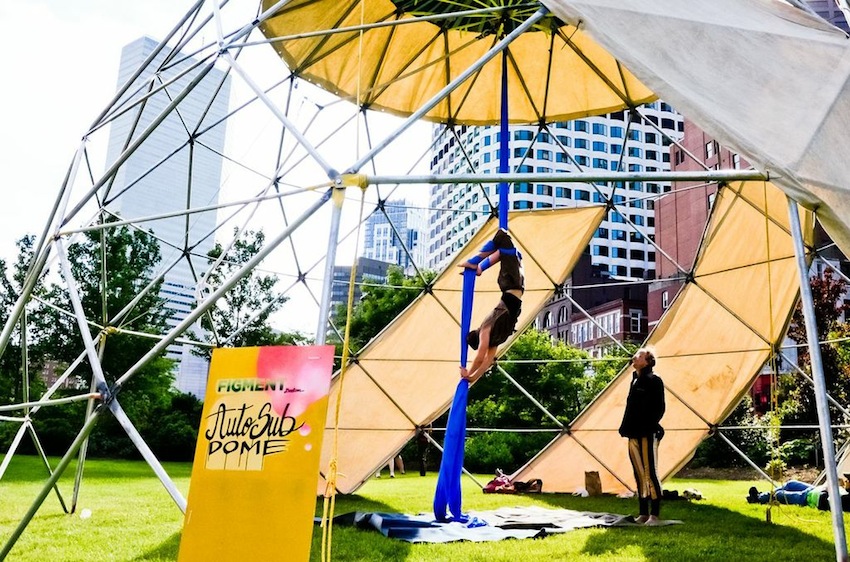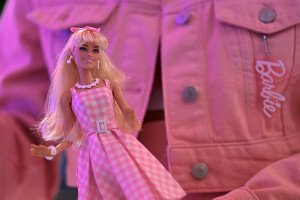Figment Returns to Boston with ‘After Dark’ Dance Party

Photo by Clare Densmore/Figment
At Figment, art is not meant to simply be viewed. Instead, the artist-spectator relationship is fluid in activities like the Real Time Art Show, a social photography experiment that will appear at this year’s event. With the goal of creating a real-time gallery of Figment, the exhibit’s curators will take photos of the festival and add them to the ever-changing display, while attendees are encouraged to do the same and take home any photos that appeal to them.
The Real Time Art Show perfectly illustrates Figment’s mission: The nonprofit organization’s primary aim is to “build community through shared art experiences,” says Claire Davies, the communications director for Figment Boston.
A two-day festival celebrating participatory public art, Figment returns to the Rose Kennedy Greenway this Saturday and Sunday, July 26 and 27. All of the art installations for Figment are required to be interactive in some way, hence the term “participatory art.”
“We’re sort of blurring the lines between museum walls, and what it is to be an artist and a creator, and what it is to be a spectator,” Davies says.
Some 60 artists will exhibit or perform their work over the course of the weekend. Projects will include “The Line of Life,” a collaborative art series by Ernest English, a 3D community mural, and the Jamaica Plain Honk Band.
Exhibitors are chosen through an online application process, where projects are judged on their feasibility. Submissions come from not only well-established artists, but also those who are still fine-tuning their craft, Davies says, noting that this year saw a great number of high-quality submissions. “We’ve only been building on momentum for the past five years.”
Begun in New York, Figment now includes annual events in cities across the country and around the world. While Boston has been known for having “very smart, tech-savvy artists,” Figment’s framework allows for organic and spontaneous flow, Davies says. “It’s a very joyful event.”
The joy extends late into the evening on day one for those who aren’t ready for the participatory art experience to end. From 6 to 11 p.m. on Saturday, Figment After Dark will take over Dewey Square. A nighttime dance party, Figment After Dark allows the organization to expand its music programming, and it accommodates art pieces that are best shown in the dark, like Video Bleep, a 360-degree interactive video and sound spectacle.
One of the best things about Figment is how inclusive it is, Davies says. In line with that spirit, attending Figment is free, and the day-of logistics are handled entirely by a corps of volunteers.
While it might take adults a moment to warm up to interacting with the art, they seem to universally come away with positive feelings about it, Davies says. “I have never heard a negative reaction to Figment. People are heartened that there are so many artists that do this work in the area.”
Free, Saturday, July 26, 11 a.m.-11 p.m. (including Figment After Dark), Sunday, July 27, 11 a.m.-6 p.m., Rose Kennedy Greenway, boston.figmentproject.org.

